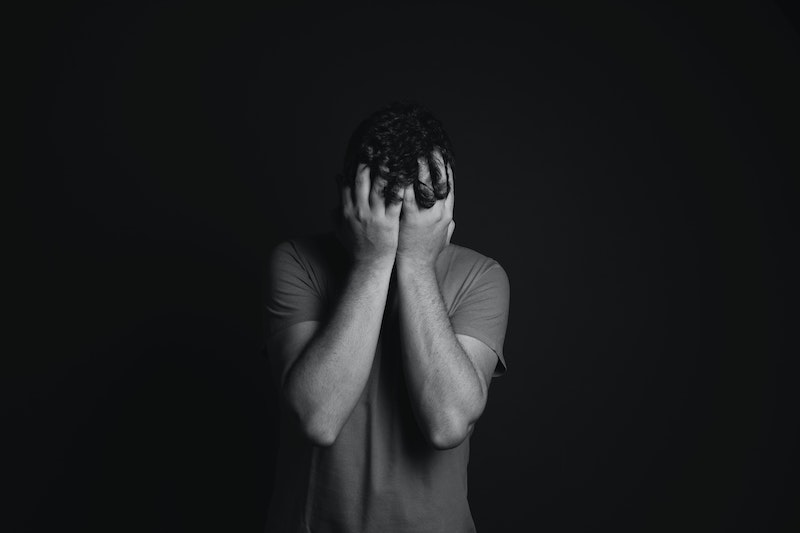What Does Depression Feel Like and Why it Occurs Among People of Different Age Groups
Depression is a medical condition that impacts one negatively, like how one feels, acts, and thinks. A persistent feeling of loss and sadness keeps you from performing activities you once enjoyed. Globally, approximately 5% of adults (a person who is 18 years or older) and 5.7% of older adults (a person who is over 60 years of age) suffer from depression. The World Health Organization (WHO) data highlights that 280 million people worldwide are affected by depression1.
The above numbers indicate that depression is a common mental health condition and is one of the leading contributors to the global burden of diseases. Fortunately, depression is treatable if timely support is offered to the patient. If the treatment is delayed or symptoms are noticed later, it may cause a range of emotional and physical ailments. It can decline your ability to function productively at home and in the workplace.
Early Warning Signs of Depression
The signs and symptoms of depression can differ from mild to severe, but some of the evident ones can be classified into the following three categories2:
- Emotional Symptoms: The primary symptoms include a sad mood, loss of interest in life or things you otherwise liked, reduced concentration, impaired learning, lower processing speed, hopelessness, and angry outbursts over small matters.
- Physical Symptoms: Though depression is a mental health condition, it can also lead to physical symptoms such as restlessness, gut-related issues, sleep disturbances, fatigue, joint pain, back pain, appetite changes, arthritis, headache, high blood pressure, diabetes, and chest pain. Untreated depression even affects one’s immune response to certain vaccines3.
- Behavioral Symptoms: Some behavioral characteristics that people with depression display include irritability, excessive desire to sleep, increasing challenges in fulfilling demands at home and work, trouble sitting still, extreme guilt, sudden uncontrollable crying, self-harm, and suicide attempts in severe cases.
Without treatment, the emotional, behavioral, and physical turmoil caused due to depression can disrupt one’s career, relationship, and hobbies. In extreme cases, some minor signs can aggravate in due course of time and become life-threatening.
Reasons Why People Experience Depression
Depression is not something that has one specific cause. It can occur for different reasons and involves many different triggers. For example, a person may be upset over a severe illness and then experience a traumatic event, like a close family member’s death. A combination of such events can cause depression.
Similarly, we also often hear about instances where a “downward spiral” of events led to depression. Let us assume you recently parted ways with your partner and eventually stopped socializing and started indulging in excessive alcohol consumption. The feeling of sadness with isolation and alcohol consumption can trigger depression.
The surprising fact that countless studies have pinpointed is that women are about twice as likely as men to experience depression. There is evidence that suggests this gender gap concerning depression will continue to exist, irrespective of one’s race or ethnicity. Below, find some of the causes and risk factors for depression:
- Childhood Experiences: People who have been through a turbulent childhood are likely to grow up as vulnerable individuals and may experience depression at some point. The stressful events could be neglect; emotional, sexual, or physical abuse; traumatic events; losing someone dearly; and an unstable family scenario. Such experiences can also severely hamper one’s self-esteem and ability to deal with challenging situations and emotions.
- Life Events: In some cases, depression could be triggered by stressful and unforeseen events like the end of a relationship, unemployment, being abused or bullied, being sexually or physically assaulted, bereavement, or significant changes in life like moving countries, getting married, or changing jobs.
- Genetic Inheritance: Many reports have shown that if you have a family history of depression, you may experience depression at some point in your life. Though our biology could cause this, there are chances of undergoing this condition because we observe behaviors and patterns of coping from those around us as we grow up.
- Poor Physical Health: Chronic physical health problems can increase your risk of developing depression. Conditions related to the brain and nervous system, hormonal problems, particularly thyroid, issues relating to the menstrual cycle, sleep problems, and low blood sugar are some of the conditions that can cause depression.
- Excessive Indulgence in Alcohol and Drugs: Heavy alcohol consumption changes the brain’s neurotransmitters. Every time a person indulges in alcohol or drugs, their serotonin and dopamine will fluctuate drastically, which helps to improve one’s mood or escape from feelings of despair. The constant fluctuation of these chemicals can lead to depression symptoms and other health problems4.
Apart from these risk factors, inappropriate medication, other mental health problems, and poor lifestyle can also lead to changes in mood, making it challenging for you to cope with stressful events and increasing your vulnerability to developing depression.
At What Age Can Depression Occur5?
A report by Our World in Data indicates that, on average, people experienced signs of depression five years before their diagnosis. When evaluated based on symptoms, the average age of onset was 26 years. Likewise, when measured based on a diagnosis, the average age of onset was 31 years. The report also highlighted a vast difference in the observation formed based on symptoms and diagnosis.
For instance, more and more people are being diagnosed with depression earlier than they would due to increased awareness surrounding mental health disorders and easy access to treatment. This shift in the age of diagnosis means that people are now being detected with depression early on. In the past, similar cases were probably diagnosed when people were experiencing their second or third episode – or were left entirely undiagnosed. Thus, understanding the age of onset is imperative, as the screening and treatment for mental health conditions are guided by age.
Significance of Raising Awareness of Depression
Although the perception around depression has changed in the past few decades, there still exists some stigma around the condition, mainly because of lack of awareness, education and media stereotypes. Stigma affects not only those seeking treatment but also the one’s offering resources for proper treatment. In fact, stigma and misinformation can act as hindrances for someone already struggling with a mental health condition and hesitating to take treatment.
If you know someone who is experiencing depression, here is how you can help:
- Express respect and acceptance towards that person, so they know you are viewing them as an individual without holding prejudices for their condition. This can make a huge difference and help remove barriers that may be stopping them for coping with their illness.
- Advocate within your circle to ensure individuals undergoing depression get the same kind of opportunities and rights as other members.
- Learn more about depression and other mental health conditions to provide support to those affected in your family or social community.
Knowing that depression can occur at any age and due any reason can help us prepare ourselves to help those in need. That, in essence, remains the objective of observing Depression Awareness Month!
Fonti:
1. https://www.who.int/news-room/fact-sheets/detail/depression
2. https://www.hopkinsmedicine.org/health/conditions-and-diseases/depression-what-you-need-to-know-as-you-age
3. https://www.hopkinsmedicine.org/health/conditions-and-diseases/depression-what-you-need-to-know-as-you-age#definitions_block
4. https://www.alcoholrehabguide.org/resources/dual-diagnosis/alcohol-and-depression/
5. https://ourworldindata.org/depression-age-of-onset

